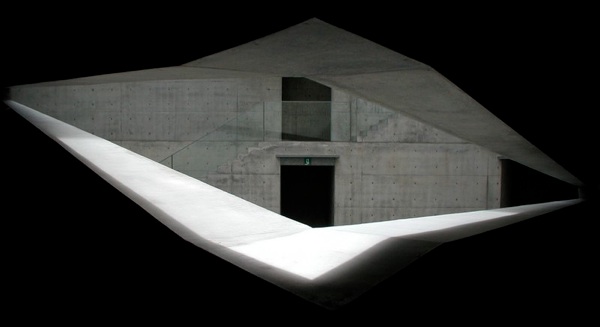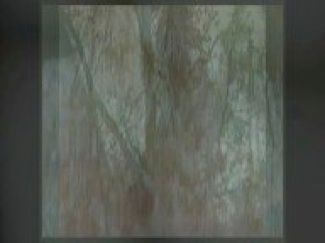8
technology -
towards a deep ecology of art, architecture and being
research project of goldsmiths, university of london
8
technology -
towards a deep ecology of art, architecture and being
research project of goldsmiths, university of london
director: raphael jay adjani
associate: sian ni mhuiri
幽玄
visit blog page for
more on:

towards
a poor technology
how i see this on monday 20th september
(another day it would be different):-
this project - towards a poor technology - has three main manifestations currently:
- this website:
-the film:
-the film:
at the same time it's a basic ethic and aesthetic being employed across a range of projects.
this project engages with an idea of art that it exists in the every day and every moment through the nature of our perception, and the cultivation of our apperception.
the nature of our spectatorship can be thought of as ‘art’ here.
such a notion has resonance with many other ideas and practices.
for example marcel duchamp stated toward the end of his life:
if you wish my art would be that of living: each second, each breadth is a work inscribed nowhere, which is neither visual nor cerebral. it’s a sort of constant euphoria.
it resonates with zen philosophy and zen art, such as the japanese tea ceremony (in japanese: sado, which means ‘way of tea’) which is a sophisticated space of inter-action and immersion at many levels.
engaging with animist, buddhist and tantric notions that all phenomena are sacred, some of the 8 people have been engaged increasingly in developing work through and with technology and applications of the everyday, and of the corporate technology and processes. This has involved deliberate working with ‘basic’ applications such as powerpoint, iweb, keynote, imovie; working with ‘lo-fi’ recorders that exist on cameraphones, recording visual images – moving and still – with such phones also. In one sense this could be thought of as where ‘shallow’ technology can reveal ‘deep’ technology. another description could be ‘towards a ‘poor’ technology’. in part there is a deliberate attempt to engage with a particular kind of wabi sabi that certain commentators have attributed to rikyu’s tea ceremony: an art of poverty.
this is mirrored in other works such as a current project in development to take place in a theatre, i_magine, due to be presented in 2011, where theatre lighting is hardly used in favour of ‘practicals’ such as cycle lamps and domestic table lamps.
scenographically i_magine engages with the every day and the premise of finding the sacred in the every day by using found objects in a number of ways. one of this is using the technologies and equipments and resources that one finds immediately before one. therefore scenographically each location of presentation will shape the work.
taking on board an idea from the tea ceremony of wabi sabi and a kind of technology povera, for zero - the aroma of technology the flavour of art, to savour being, presented in Tokyo, in 2009, 8 people chose to seek (and found) lights in a 100 Yen Shop (equivalent of a Pound Shop in UK) to light the work.
some images for the film relationship-place naka-ma and works in the zero series were deliberately shot with a nokia n90 cameraphone. this is not a refusal to work in ‘hi-tech’ but a working process where ‘hi-tech’ is not the godhead, and is part of a wider dimensional ontological art praxis. the question is not what technology one is using - whether or it is ‘hi-tech’ or ‘lo-tech’ - but how one is using it and for what aim.
the nature of the composition of the film zero = every day? approaches a form-theme synthesis, formally engaging with some of the concepts discussed. moreover, it corresponds in part to the book publication zero – the confluence of art and technology.
it also attempts such a form-theme synthesis. the film is made using keynote application. with the keynote software, there was a particular dynamic being developed between stillness and movement. one of the aims here is to actually develop a sense of stillness in moving image, as well as movement in still image. each ‘slide’ acts as much like a still life tableau distinct but still inter-dependent on all the other slides.
zero = every day? engages in many ways with the every day and the premise of finding the sacred in the every day by using found objects and technologies: deliberately choosing to use the technologies, processes, equipment and resources that one finds immediately before one.
the site www.8technology.net is ‘art ‘, ‘information’ and a space of sharing and dialogue: here it is an art of conviviality like the tea ceremony. I welcome responses, counter-proposals and ideas via the site blog, via facebook, and via twitter. facebook, twitter and similar processes are specifically engaged with as technologies of the very day.
when philosopher arne naess develop the idea of ecosophy, there was not a singular point of view but a polyphonic one. There could be many ecosophies. For the moment this one is called ecosophy 8. Another day it could be something else, written by a another 8 associate or anyone who is interested.
there is less emphasis on finding ultimate truths, or gods, but on process and of each person developing her/his own way to knowing.
so this 8 website is created and tended near daily, in a deliberate, ritualised process of re-construction and re-creation, according to mood, season, context, a durational work without duration, a ‘technology’ of the every day in the manner of a daily tea ceremony or tending of a zen garden. each page is unique: constructed with minor compositional variation. spot the deliberate imperfections. it is slo-food rather than fast-food: with links deliberately at the bottom of each page, not at the top. this is a space created not solely with quick inter-action in mind, but as a space of immersion, for your pleasure
looking forward to a conviviality.


f.a.q.
what is
what do we mean by
what is
what is
what is
what is
f.a.q.
what is
what do we mean by
what is
what is
what is
what is
director:
raphael jay adjani
a.k.a. ajaykumar
primary associate:
sian ni mhuiri
8 technology a.k.a. ecosophy 8 a.k.a. 8
brings together particular ideas from science, digital technology, philosophy, architecture and art to facilitate sublime works that shed light on our contemporary ecology and being.
this site is both ‘art ‘ and ‘information’ in that it can tell you about what 8 does, at the same time it is created and tended near daily, in a deliberate, ritualised process of re-construction and re-creation, according to mood, season, context,
-a durational work without duration -
a ‘technology’ of the every day,
in the manner of a daily tea ceremony or tending of a zen garden, for your pleasure...
each page is unique: constructed with minor compositional variation.
spot the deliberate imperfections.
view via the sublime filmic work, version for the internet: naka-ma
connect with 8 technology’s daily twitter
join the evolving discussion at facebook